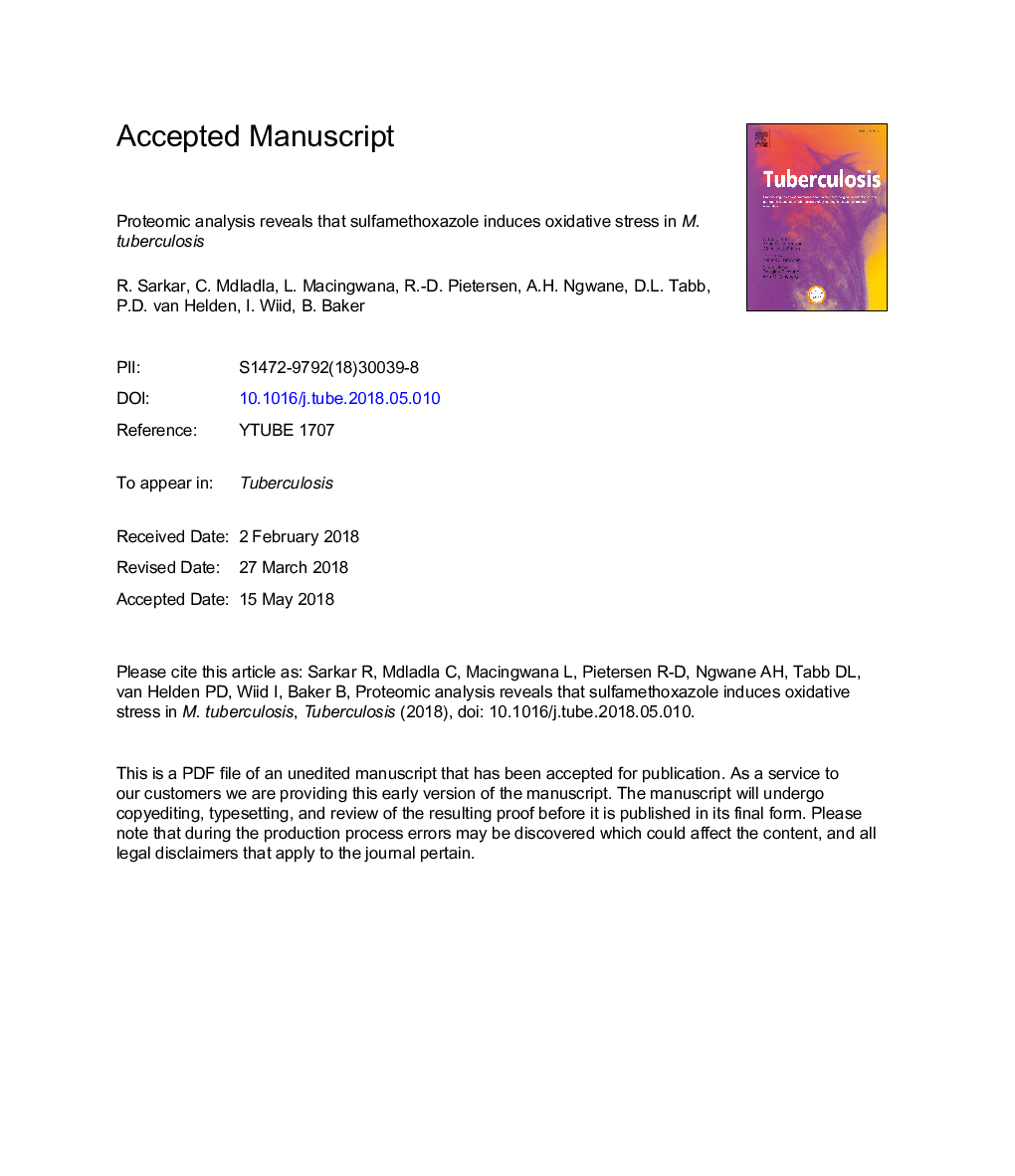| کد مقاله | کد نشریه | سال انتشار | مقاله انگلیسی | نسخه تمام متن |
|---|---|---|---|---|
| 8485096 | 1551696 | 2018 | 24 صفحه PDF | دانلود رایگان |
عنوان انگلیسی مقاله ISI
Proteomic analysis reveals that sulfamethoxazole induces oxidative stress in M. tuberculosis
ترجمه فارسی عنوان
تجزیه پروتئومیک نشان می دهد که سولفامتوکسازول باعث استرس اکسیداتیو در سلول های تومورال می شود
دانلود مقاله + سفارش ترجمه
دانلود مقاله ISI انگلیسی
رایگان برای ایرانیان
کلمات کلیدی
موضوعات مرتبط
علوم زیستی و بیوفناوری
ایمنی شناسی و میکروب شناسی
میکروبیولوژی و بیوتکنولوژی کاربردی
چکیده انگلیسی
The emerging resistance of tuberculosis (TB) to current first line drugs (isoniazid, rifampicin, pyrazinamide, ethambutol) warrants alternative treatment approaches with broad-spectrum efficacy. Previously, we have shown that sulfamethoxazole (SMX) has synergestic activity with rifampicin against Mycobacterium tuberculosis. The primary target of SMX is folP1 in mycobacteria; however, SMX may affect other secondary targets in M. tuberculosis. This study investigated the potential additional targets of SMX in a clinical isolate of M. tuberculosis using Orbitrap mass spectrometry to identify differentially expressed proteins following treatment with a sub-lethal concentration of SMX. Raw data have been deposited as ProteomeXchange accession PXD009315. Our proteomic analysis identified approximately 1500 proteins in total of which 45 proteins were differentially regulated as a result of SMX treatment. These included 25 upregulated and 20 downregulated proteins. The oxidative stress proteins (Rv2428, AhpC and Rv2394, GgtB) and an enzyme from the electron transport chain (Ndh-II, Rv1854c) were found to be upregulated. Gene expression analysis correlated with the observed proteomic changes. In conclusion our results show that SMX treatment of a drug sensitive M. tuberculosis clinical isolate resulted in the regulation of proteins involved in the oxidative stress response, indicating the induction of oxidative stress by SMX in mycobacteria.
ناشر
Database: Elsevier - ScienceDirect (ساینس دایرکت)
Journal: Tuberculosis - Volume 111, July 2018, Pages 78-85
Journal: Tuberculosis - Volume 111, July 2018, Pages 78-85
نویسندگان
R. Sarkar, C. Mdladla, L. Macingwana, R.-D. Pietersen, A.H. Ngwane, D.L. Tabb, P.D. van Helden, I. Wiid, B. Baker,
